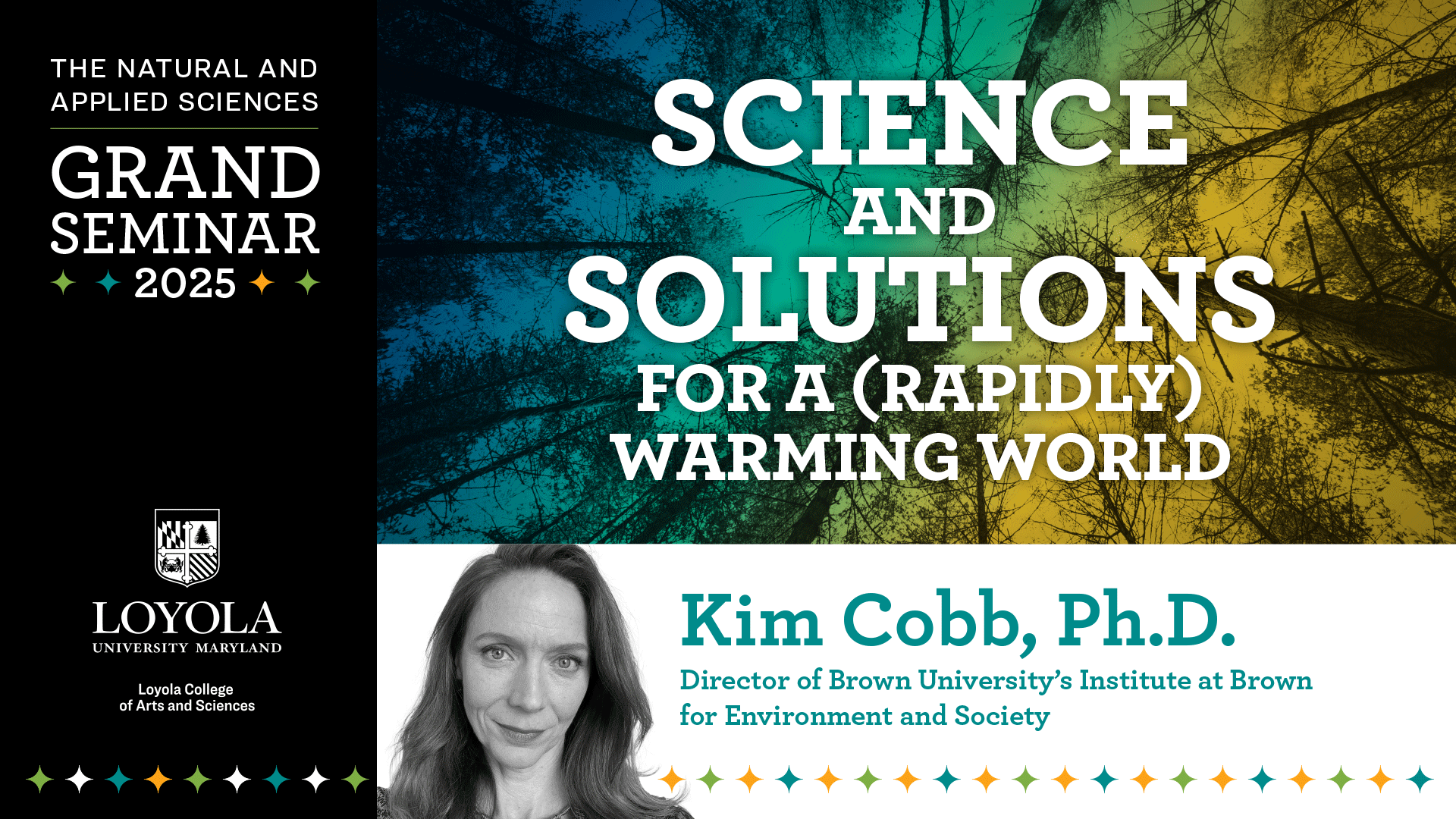2025 Grand Seminar to explore global warming and climate solutions

Kim Cobb, Ph.D., director of the Institute at Brown for Environment and Society (IBES) at Brown University, will present the 2025 Grand Seminar lecture on Wednesday, Oct. 29, at 6 p.m. in McGuire Hall. The event, presented by Loyola’s academic division of natural and applied sciences, is free and open to the public. Advanced registration is strongly recommended for in-person and virtual attendance.
Titled “Science and solutions for a (rapidly) warming world,” Cobb’s keynote presentation will explore recent evidence suggesting an acceleration in global warming rates and the need to invest in adaptation and resilience strategies while working to reduce fossil fuel emissions.
Cobb, who is also a professor in environment and society as well as Earth, environmental, and planetary sciences at Brown, will share examples of ongoing research in climate resilience and emissions mitigation focused on accelerating the design and deployment of equitable, durable, scalable, and replicable climate solutions. She highlights a key role for institutional innovation in advancing climate action through research, education, and public engagement, with a focus on equipping and empowering the next generation of climate leaders.
“We are honored to welcome Dr. Kim Cobb to Loyola as this year’s Grand Seminar keynote speaker,” said Bahram Roughani, Ph.D., associate dean of natural and applied sciences. “There is a natural overlap between her expertise in climate science and the University’s focus on caring for our common home and integral ecology, as well as our new environmental science and studies programs.”
As a climate scientist, Cobb uses observations of past and present climate to advance our understanding of future climate change impacts, with a focus on climate extremes and coastal flooding. She received her B.A. from Yale University in 1996, and her Ph.D. in Oceanography from the Scripps Institute of Oceanography in 2002.
Prior to joining Brown in 2022, Cobb worked at the Georgia Institute of Technology as the director of the Global Change Program and as a professor in the School of Earth and Atmospheric Sciences, as well as ADVANCE professor for diversity, equity, and inclusion. She has received a National Science Foundation CAREER Award, a Presidential Early Career Award for Scientists and Engineers, and the Hans Oeschger Medal from the European Geosciences Union in 2019. She was elected as an American Association for the Advancement of Science Fellow in 2021 and was a lead author for the Intergovernmental Panel on Climate Change Sixth Assessment Report, released in 2021. In 2023 she was appointed to President Biden’s Intelligence Advisory Board, and was elected as one of the 2023 American Geophysical Union’s (AGU) Fellows.
As a mother to four, Cobb is a strong advocate for women in science. She is also devoted to the communication of climate change to the public through media appearances, public speaking, and social media channels, and enjoys frequent exchanges with policymakers about climate impacts and solutions.
The 2025 Hauber Research posters will be on display in McGuire Hall during the Grand Seminar pre-lecture reception from 5 to 6 p.m.
About natural and applied sciences at Loyola
Natural and applied sciences at Loyola engages its students through excellence in the study of biology, biochemistry, biohealth, chemistry, computer science, data science, engineering, environmental science and studies, forensic science, mathematical and statistical science, nursing, and physics. Students learn to become adaptive learners and ethical leaders ready to serve in a diverse and changing world.
Growing health and STEM programs is an initiative of Loyola’s strategic plan, Together We Rise. In the summer of 2024, Loyola broke ground on the 18,000-square-foot addition and renovation of the Donnelly Science Center to support existing and new STEM programs, including nursing.